Harnessing the power of seaweed: unveiling the potential of marine algae in drug discovery
Seaweeds, also known as marine algae, have gained attention as a promising source of bioactive compounds with potential applications in drug discovery. This review explores the emerging field of sea
[...] Read more.
Seaweeds, also known as marine algae, have gained attention as a promising source of bioactive compounds with potential applications in drug discovery. This review explores the emerging field of seaweed-based drug discovery and highlights the diverse range of bioactive compounds found in seaweeds, including polysaccharides, phlorotannins, pigments, and peptides. These compounds exhibit various pharmacological activities such as antioxidant, anti-inflammatory, antimicrobial, antiviral, and anticancer effects. Seaweeds have demonstrated particular promise in the areas of cancer research, with certain species showing potent antitumor properties. Additionally, their anti-inflammatory, antimicrobial, and neuroprotective potential has captured scientific interest in the treatment of chronic diseases and neurodegenerative disorders. However, challenges related to compound identification, extraction methods, scalability of seaweed cultivation, and understanding the mechanisms of action still need to be addressed. As researchers employ advanced technologies and dive deeper into the chemical composition of seaweeds, the untapped potential of these marine organisms in drug discovery awaits further exploration and holds significant promise for future therapeutic advancements.
Leonel Pereira, Ana Valado
Seaweeds, also known as marine algae, have gained attention as a promising source of bioactive compounds with potential applications in drug discovery. This review explores the emerging field of seaweed-based drug discovery and highlights the diverse range of bioactive compounds found in seaweeds, including polysaccharides, phlorotannins, pigments, and peptides. These compounds exhibit various pharmacological activities such as antioxidant, anti-inflammatory, antimicrobial, antiviral, and anticancer effects. Seaweeds have demonstrated particular promise in the areas of cancer research, with certain species showing potent antitumor properties. Additionally, their anti-inflammatory, antimicrobial, and neuroprotective potential has captured scientific interest in the treatment of chronic diseases and neurodegenerative disorders. However, challenges related to compound identification, extraction methods, scalability of seaweed cultivation, and understanding the mechanisms of action still need to be addressed. As researchers employ advanced technologies and dive deeper into the chemical composition of seaweeds, the untapped potential of these marine organisms in drug discovery awaits further exploration and holds significant promise for future therapeutic advancements.
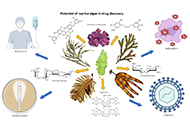 Harnessing the power of seaweed: unveiling the potential of marine algae in drug discoveryOpen AccessReviewSeaweeds, also known as marine algae, have gained attention as a promising source of bioactive compounds with potential applications in drug discovery. This review explores the emerging field of sea [...] Read more.Leonel Pereira, Ana ValadoPublished: December 28, 2023 Explor Drug Sci. 2023;1:475–496
Harnessing the power of seaweed: unveiling the potential of marine algae in drug discoveryOpen AccessReviewSeaweeds, also known as marine algae, have gained attention as a promising source of bioactive compounds with potential applications in drug discovery. This review explores the emerging field of sea [...] Read more.Leonel Pereira, Ana ValadoPublished: December 28, 2023 Explor Drug Sci. 2023;1:475–496 Reactivation of latent hepatitis B infection during immunosuppressive therapy with guselkumab for plaque psoriasis: a case reportOpen AccessCase ReportReactivation of hepatitis B virus (HBV; RHBV) is a significant concern during immunosuppressive therapy, as it can lead to severe hepatitis and liver failure. The article reports a case of RHBV duri [...] Read more.Elena Franchi ... Pietro AndreonePublished: December 27, 2023 Explor Drug Sci. 2023;1:468–474
Reactivation of latent hepatitis B infection during immunosuppressive therapy with guselkumab for plaque psoriasis: a case reportOpen AccessCase ReportReactivation of hepatitis B virus (HBV; RHBV) is a significant concern during immunosuppressive therapy, as it can lead to severe hepatitis and liver failure. The article reports a case of RHBV duri [...] Read more.Elena Franchi ... Pietro AndreonePublished: December 27, 2023 Explor Drug Sci. 2023;1:468–474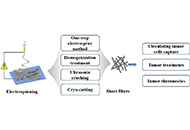 Electrospun short fibers: a new platform for cancer nanomedicine applicationsOpen AccessReviewWith the continuous development of nanomaterials, nanofibers prepared by electrospinning have gradually occupied people’s vision because of their unique advantages, such as crisscross network and [...] Read more.Yifan Huang ... Xiangyang ShiPublished: December 27, 2023 Explor Drug Sci. 2023;1:454–467
Electrospun short fibers: a new platform for cancer nanomedicine applicationsOpen AccessReviewWith the continuous development of nanomaterials, nanofibers prepared by electrospinning have gradually occupied people’s vision because of their unique advantages, such as crisscross network and [...] Read more.Yifan Huang ... Xiangyang ShiPublished: December 27, 2023 Explor Drug Sci. 2023;1:454–467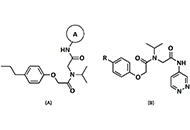 Rational design of novel phenol ether derivatives as non-covalent proteasome inhibitors through 3D-QSAR, molecular docking and ADMET predictionOpen AccessOriginal ArticleAim: The purpose of this paper is to use different structures and ligand-based drug design methods properly to provide theoretical guidance for the design of novel non-covalent proteasome inhibit [...] Read more.Miao Yuan ... Ping ChengPublished: December 27, 2023 Explor Drug Sci. 2023;1:435–453
Rational design of novel phenol ether derivatives as non-covalent proteasome inhibitors through 3D-QSAR, molecular docking and ADMET predictionOpen AccessOriginal ArticleAim: The purpose of this paper is to use different structures and ligand-based drug design methods properly to provide theoretical guidance for the design of novel non-covalent proteasome inhibit [...] Read more.Miao Yuan ... Ping ChengPublished: December 27, 2023 Explor Drug Sci. 2023;1:435–453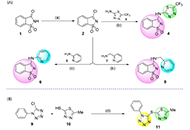 Hybrid azole-based conjugates as upcoming anticancer and antimicrobial agentsOpen AccessOriginal ArticleAim: This study discloses the synthesis and the antimicrobial and anticancer activities of four molecules of structural basis saccharin-thiadiazolyl (4), saccharin-pyridyl (6, 8), and tetrazole-t [...] Read more.Luís M. T. Frija ... Patrícia RijoPublished: November 23, 2023 Explor Drug Sci. 2023;1:420–434
Hybrid azole-based conjugates as upcoming anticancer and antimicrobial agentsOpen AccessOriginal ArticleAim: This study discloses the synthesis and the antimicrobial and anticancer activities of four molecules of structural basis saccharin-thiadiazolyl (4), saccharin-pyridyl (6, 8), and tetrazole-t [...] Read more.Luís M. T. Frija ... Patrícia RijoPublished: November 23, 2023 Explor Drug Sci. 2023;1:420–434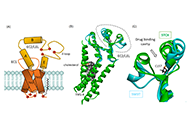 Insights into the binding selectivity of harzianoic acids A and B to tetraspanin CD81Open AccessOriginal ArticleAim: Harzianoic acids A and B (Hz-A/B) are two rare cyclobutene-containing sesquiterpenes isolated from a marine strain of the sponge-associated fungus Trichoderma harzianum. They display anticancer and antiviral effects, r [...] Read more.Gérard Vergoten, Christian BaillyPublished: November 01, 2023 Explor Drug Sci. 2023;1:405–419
Insights into the binding selectivity of harzianoic acids A and B to tetraspanin CD81Open AccessOriginal ArticleAim: Harzianoic acids A and B (Hz-A/B) are two rare cyclobutene-containing sesquiterpenes isolated from a marine strain of the sponge-associated fungus Trichoderma harzianum. They display anticancer and antiviral effects, r [...] Read more.Gérard Vergoten, Christian BaillyPublished: November 01, 2023 Explor Drug Sci. 2023;1:405–419